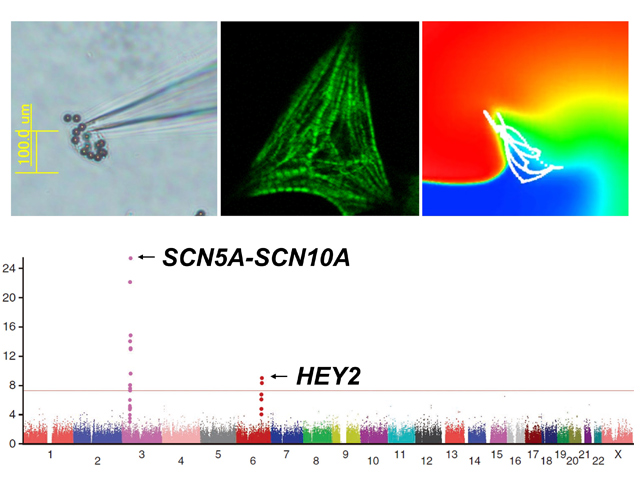| Outline |
|---|
|
We aim at determining the pathophysiological and genetic basis of sudden cardiac death and hereditary arrhythmias.
Using high throughput genetic and genomic approaches including whole-exome sequencing (Exome) and genome-wide association study (GWAS), and we are searching for novel responsible genes and genetic variations predisposing affected individuals to sudden death.
To delineate the pathophysiological mechanisms underlying these life-threatening arrhythmias, we use several approaches including in vivo/in vitro functional analyses including patch clamp analysis, optical mapping, patient-derived iPS cardiomyocytes, genetically modified animals using genome editing technologies.
These translational researches have been achieved by extensive collaborations with numbers of domestic and international researchers and clinicians.
Our final goal is to identify and stratify the genetic risks for sudden death, and to implement personalized preventive medicine based on the individual's genetic risks. 1. Identify and stratify genetic/genomic risks for sudden death in inherited arrhythmias (long QT syndrome, Brugada syndrome, idiopathic ventricular fibrillation, progressive cardiac conduction defect, etc) using genetic/genomic approaches (Exome, Whole-genome sequencing, and GWAS) 2. Electrophysiological determination of the mechanisms underlying in life-threatening arrhythmias using in vitro and in silico systems (patch clamp, patient-derived iPS cells, computer simulation, optical mapping, etc). 3. In vivo evaluation of the pathophysiology of life-threatening arrhythmias (transgenic, knock-in and knock-out, and CRISPR genome editing mice, bradycardia-induced electrical storm rabbit model). |
| Further information |
|---|
|
https://cvmp.med.nagasaki-u.ac.jp/?lang=en
|



